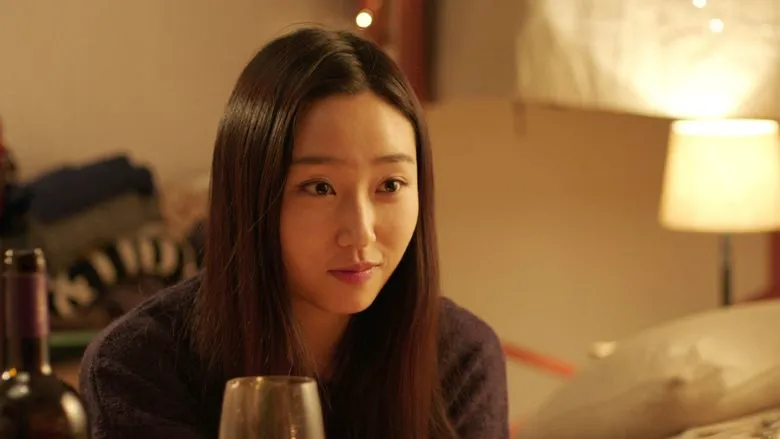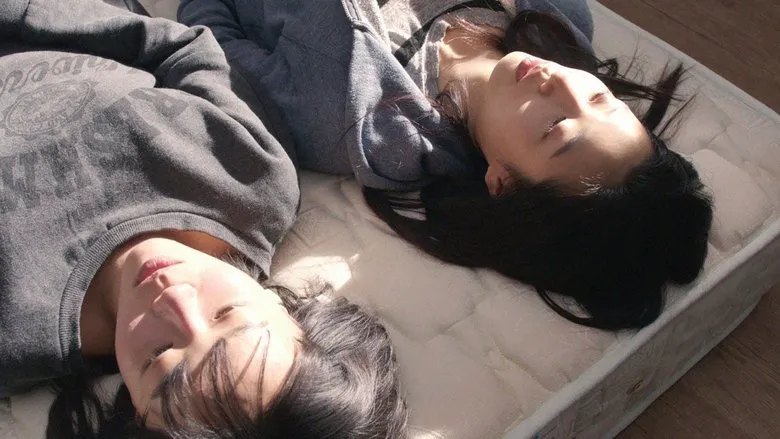While Chinese films and those from neighboring Japan and South Korea frequently dominate discussions about Asian cinema, the occasional gem from Thailand, Vietnam, or India provides a refreshing change of pace. Singaporean cinema, however, often remains relatively unexplored. While Singapore boasts renowned singers such as JJ Lin, Stefanie Sun, Tanya Chua, and A-Do, the influence and recognition of its films may not yet be on par.
Enter “Long Long Time Ago” (我们的故事), a film series that serves as an excellent introduction to Singaporean cinema.
A Glimpse into Singaporean Life Through “Long Long Time Ago”
This film series offers an intimate portrayal of Singaporean life through the lens of a Chinese family, chronicling their experiences and the nation’s evolution. Comprising four chapters, the first two are the most readily available, and this review will primarily focus on them.
Set between 1965 and 1977, the story unfolds through the eyes of Zhao Di, a hardworking and resilient traditional Chinese woman. Her eldest daughter, Chen Su-Ting, also provides a nostalgic narration, looking back on the events of their lives.
In an era where the preference for sons was deeply entrenched, both Chen Su-Ting and her mother, Zhao Di, find themselves facing injustice and a sense of powerlessness. The film masterfully employs elements of traditional Chinese culture to create a powerful sense of nostalgia, transporting audiences to a bygone era.
Zhao Di and Her Family’s Struggles
Zhao Di endures discrimination from her husband’s family for bearing three daughters. Following her husband’s untimely death, she is cruelly forced out by his first wife, left with nowhere to turn.
Seeking refuge, Zhao Di returns to her family in the countryside. However, her superstitious father, believing her birthdate clashes with his, only allows her to address him as “Fourth Uncle.” It isn’t until he faces a life-threatening illness that he finally acknowledges her as his daughter.
Upon her return to her family, Zhao Di gives birth to twins. Pressured by superstitious villagers, she reluctantly agrees to give up her daughter for adoption by a wealthy family, a decision that becomes a lifelong source of sorrow. Zhao Di’s father embodies the values of the older generation, with his emphasis on sons, his unwavering belief in astrology, and his adherence to practices like “chongxi” (warding off bad luck through marriage).
Her brother, Ah Kun, is a more complex character, embodying selfishness, pettiness, unrealistic expectations, and a love of gossip and gambling. Despite his flaws, he is seldom disciplined by his parents, who frequently give in to his demands.
Ah Kun is also portrayed as being resentful of his sister’s presence and constantly attempts to drive her away. Yet, he expects her to contribute financially to the household. He consistently complains if Zhao Di benefits in any way, but when he incurs gambling debts, she is always the one to step in and help.
For example, when Ah Kun is threatened by gangsters, Zhao Di sacrifices her gold earrings to settle his debts. During the devastating floods of 1969, she even saves him from drowning.
Zhao Di works relentlessly to provide for the family, even allocating a portion of the government compensation she receives for land acquisition to Ah Kun when she is diagnosed with cancer.
Despite Ah Kun’s constant criticisms and negativity, Zhao Di always treats him with unwavering kindness and compassion.
Her mother and younger brother, Ah Xi, offer Zhao Di the most acceptance and support. Upon Zhao Di’s return, her mother asks Ah Xi to give up his room for Zhao Di’s family
When Zhao Di and Ah Xi encounter inspectors and gangsters while trying to make a living selling soy milk, Ah Xi fearlessly defends his sister, and Zhao Di bravely shields him from harm. Eventually, even the hardened gangster Ah Long is moved by Zhao Di’s courage and ultimately reforms his ways.
Through her mother and Ah Xi, Zhao Di experiences true familial love and acceptance.
However, Zhao Di unknowingly perpetuates the preference for sons that she herself suffered from, unfairly imposing these outdated values onto her own daughter, Chen Su-Ting, who is invariably blamed whenever she fails to care for her younger brother. The old ideals leave an indelible mark on Zhao Di and her eldest daughter, creating a complicated relationship filled with both pain and love.
A Cultural Mosaic
Singapore is a vibrant multicultural society, with Chinese immigrants constituting the majority alongside Malaysians, Indians, and people of other ethnicities. These diverse communities experience both conflict and times of unity.
When Zhao Di first arrives at her family’s home, Osman, a Malaysian who previously worked for her at the coffee shop, offers her invaluable support during her difficult times. Osman teaches Zhao Di how to sell soy milk at the market and successfully persuades her to sell it at a foreign-owned factory cafeteria. Their reciprocal support showcases the strong bond of friendship that develops between the Chinese and Malaysian communities.
Initially, there is some tension with the Indian community, poignantly represented by the inspectors who relentlessly harass street vendors. Ah Xi’s marriage to an Indian girl represents a clash of old and new ideas, a crucial step forward in paving the way for greater understanding and harmony between these communities.
The film is set against the backdrop of Singapore’s separation from Malaysia and Lee Kuan Yew’s policies of attracting foreign investment and developing the nation.
“The family is the smallest country, and the country is made up of millions of families.” Zhao Di’s family and the nation are intertwined, developing and progressing together.
The old homes and villages that can never be revisited gradually become history and unforgettable memories.
This Singaporean film is a delightful surprise.